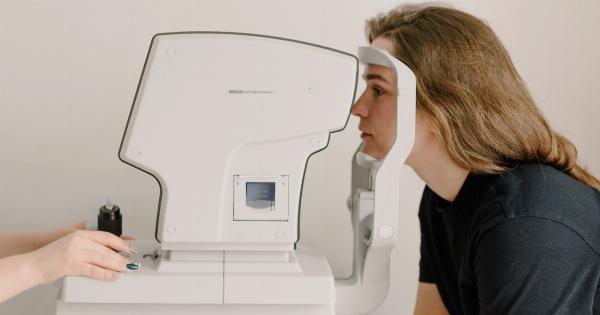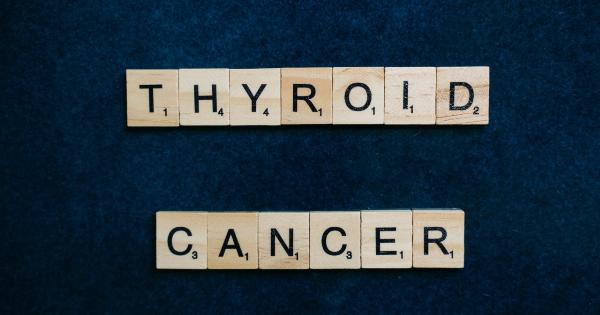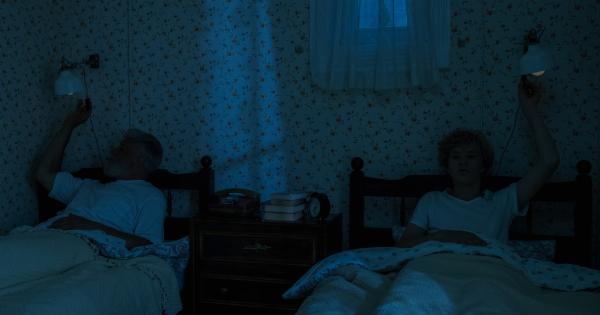The thyroid gland is a butterfly-shaped gland located in the neck region, which produces hormones that regulate various functions in the body, including metabolism, heart rate, and body temperature.
Sometimes, the thyroid gland can develop lumps or masses, called thyroid nodules, and they are quite common among adults. According to the American Thyroid Association, around 65% of people over 60 years of age have thyroid nodules, but most of them are benign and do not cause any symptoms.
In this article, we will discuss the symptoms and causes of thyroid nodules, and also shed some light on the diagnosis and treatment options available.
Symptoms of Thyroid Nodules
Many times, thyroid nodules do not cause any symptoms and are discovered incidentally during a routine physical examination or imaging tests done for other conditions.
But if the nodules grow in size or cause overproduction or underproduction of thyroid hormones, they can lead to various symptoms, including:.
- Neck swelling or lump
- Difficulty swallowing or breathing
- Hypothyroidism (underactive thyroid) symptoms: fatigue, weight gain, constipation, dry skin, hair loss, cold intolerance, depression, and memory problems.
- Hyperthyroidism (overactive thyroid) symptoms: weight loss, tremors, rapid heartbeat, anxiety, sweating, and difficulty sleeping.
It is important to note that these symptoms can be caused by other medical conditions as well, and only a healthcare professional can confirm the diagnosis through appropriate tests.
Causes of Thyroid Nodules
The exact cause of thyroid nodules is not clear, but several factors can increase the risk of developing them, including:.
- Age: As mentioned earlier, thyroid nodules are more common in people over 60 years of age.
- Gender: Women are more likely to get thyroid nodules than men.
- Heredity: If you have a family history of thyroid nodules or thyroid cancer, you are at a higher risk of getting them.
- Iodine deficiency: Iodine is an essential nutrient required for the production of thyroid hormones, and a deficiency in iodine can lead to the growth of nodules in the thyroid gland. However, this is rare in developed countries as most of the table salt is iodized.
- Radiation exposure: Exposure to radiation at a young age, such as during childhood or adolescence, can increase the risk of developing thyroid nodules and thyroid cancer later in life.
In rare cases, thyroid nodules can be caused by thyroid cancer, but most of the nodules are benign and harmless. Doctors use various tests to determine the nature of the nodules and plan the treatment accordingly.
Diagnosis of Thyroid Nodules
If your doctor suspects that you have thyroid nodules based on your symptoms and examination, he/she may order some tests to confirm the diagnosis, including:.
- Blood tests: These can measure the levels of thyroid hormones and thyroid-stimulating hormone (TSH) in the blood, and determine if you have hypo or hyperthyroidism.
- Ultrasound: This is a non-invasive imaging test that uses sound waves to create pictures of the thyroid gland and nodules, and examine their size, shape, and texture.
- Fine-needle aspiration biopsy (FNAB): This is a minimally invasive procedure that involves the insertion of a thin needle into the nodule to collect small tissue samples for examination under a microscope. This can determine if the nodule is cancerous or benign.
- Radiation scans: Sometimes, doctors may use radioactive materials to create images of the thyroid gland and evaluate the function of the gland.
Based on the results of these tests, your doctor can determine the best course of action and decide if any treatment is required.
Treatment of Thyroid Nodules
The treatment of thyroid nodules depends on various factors, including the size, nature, and symptoms of the nodules, as well as the patient’s age, overall health, and preferences. The treatment options include:.
- Watchful waiting: If the nodule is small, benign, and does not cause any symptoms, your doctor may recommend waiting and monitoring the nodule’s growth through regular check-ups and imaging tests. Most of these nodules do not require any treatment as they remain stable or shrink over time.
- Thyroid hormone replacement therapy (for hypothyroidism): If the nodule causes underproduction of thyroid hormones, your doctor may prescribe thyroid hormone replacement medication to normalize the hormonal levels in your body and shrink the nodule. This is not a treatment for the nodule itself.
- Radioactive iodine therapy (for hyperthyroidism): If the nodule causes overproduction of thyroid hormones, your doctor may recommend radioactive iodine therapy, which involves the ingestion of radioactive iodine that destroys the overactive thyroid tissue. This can normalize the hormone levels and reduce the size of the nodule.
- Surgery: In some cases, your doctor may recommend surgery to remove the nodule or the entire thyroid gland, depending on the nature, size, and symptoms of the nodules. This is usually reserved for larger nodules or nodules that are cancerous.
Your doctor can discuss the pros and cons of each treatment option with you and help you make the best decision based on your individual situation.
Conclusion
Thyroid nodules are a common medical condition that affects many people, especially women and older adults.
Most of the nodules are benign and do not cause any symptoms, but in some cases, they can lead to thyroid hormone imbalances and other complications. It is important to consult a healthcare professional if you notice any signs or symptoms of thyroid nodules, such as neck swelling or difficulty swallowing, and undergo appropriate tests to confirm the diagnosis and plan the treatment accordingly.





























